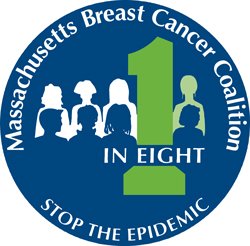Senator Markey along with Representatives Capps and Meng lead the way in toxic exposure reduction with the introduction of the “Ban Poisonous Additives (BPA) Act of 2014” in Congress. The bill, “Ban Poisonous Additives (BPA) Act of 2014” introduced in Congress on Wednesday, June 9th would require the Food and Drug Administration (FDA) to ban the use of Bisphenol A (BPA) and require a safety review of all BPA alternatives and substances currently used in food packaging. The bill takes into consideration low dose exposures and vulnerable populations, such as pregnant women and children. This bill, if enacted would increase FDA’s authority to require safer food additives.
The Massachusetts Breast Cancer Coalition and sister organization Silent Spring Institute support and applaud the efforts of Senator Edward J. Markey (D-MA) in introducing this bill in the Senate, as well as Representatives Lois Capps (D-CA) and Grace Meng (D-NY) who is championing the bill in the House. To read the full bill, visit: https://beta.congress.gov/bill/113th-congress/house-bill/2248.
Cheryl Osimo, Executive Director of the Massachusetts Breast Cancer Coalition and Co-Founder of Silent Spring Institute reflects on Senator Markey’s leadership and the importance of the BPA bill, “In the past five years, Senator Markey has been the national leader in the fight to ban BPA from all food and beverage containers by introducing the Ban Poisonous Additives Act. It was because of his first-of-its kind petition that the FDA amended its regulations to no longer allow the use of BPA in infant formula packaging. He has fought to make consumer products safer and ban harmful chemicals and products that contain triclosan, BPA, and other endocrine disruptors. We are so fortunate to have a national leader on such an important issue be our leader in the Senate for Massachusetts.”
In the past five years, Senator Markey has led the fight to ban BPA from all food and beverage containers by introducing the Ban Poisonous Additives Act. In March 2012, then-Rep. Markey submitted a petition of abandonment to the FDA that resulted in the agency amending its regulations to no longer allow the use of BPA in infant formula packaging due to the lawmaker’s petition. He was the first member of Congress to ever submit this type of petition.
Senator Markey’s office has commented on the importance of such legislation. “Doctors, researchers, parents and consumers all know that BPA is dangerous for our bodies, especially for vulnerable groups such as infants and young children and workers. It’s time to take the worry out of feeding America’s kids by taking the BPA out of infant formula, canned goods, and other food and beverage containers. The Ban Poisonous Additives Act will help ensure that our entire food supply is free from this damaging chemical. It’s time to ban BPA and move to safer alternatives. I thank the Massachusetts Breast Cancer Coalition for their tireless work raising awareness about the toxic impacts of BPA and look forward to working with them to get this important law passed.”
Julie Brody, Executive Director of Silent Spring Institute states, “When you think about what you ate for lunch, you aren’t thinking ‘plastic wrap.’ But the reality is that we don’t know enough about the many chemicals that enter our diet from food packaging. This bill requires the FDA to review the safety of all food contact substances, taking into consideration low dose exposures and vulnerable populations, such as pregnant women and children. This approach will help make sure that we don’t ban one bad chemical and replace it with another that’s just as risky. Silent Spring Institute’s Fresh Food Study showed that food packaging is the major source of exposure to certain hormone disrupting chemicals. This bill is an important step to change that.” Silent Spring Institute research shows that food packaging is the major source of exposure to BPA: http://www.silentspring.org/tooclosetohome/food-packaging-study/.
Of note, once again the American Chemistry Council, denies the importance of this bill and would rather keep the public unaware of the results of scientific research of the negative health effects of BPA.
Margo Simon Golden, Massachusetts Breast Cancer Coalition Board President reflects upon the importance of this bill and the role of Senate leadership; “Senator Markey never hesitates to take on the big issues facing our country. His leadership on working to ban BPA is helping to set a standard for industry and retailers that we hope will have a broad reach and expansive influence to ban toxic substances while protecting the health and economy of our nation.”
Toxic exposures reduction has implications for reducing the burden of all environmentally-linked diseases, including breast cancer. The Massachusetts Breast Cancer Coalition has developed a program in response to this critically important issue. In May of this year, the MBCC launched their new outreach program, “Let’s Talk Prevention: Reducing Toxic Exposures” which explains the importance of reducing ones exposure to synthetic chemicals such as BPA. The intention of “Let’s Talk Prevention: Reducing Toxic Exposures” is to increase discussions about environmental exposures between health professionals and patients through the distribution and use of a booklet for health professionals and brochure for patients.
Through these means, Massachusetts Breast Cancer Coalition’s unique approach to preventing breast cancer continues to influence public policy on both local and national scales. Through programs like the Let’s Talk Prevention: Reducing Toxic Exposures, the Massachusetts Breast Cancer Coalition is advocating to help further reduce our exposure to chemicals of concerns, and ensure that from the manufacturing floor to the store shelves, we are confident in the products we purchase, the water that we drink, and the food that we eat to be contaminant free. To review the Let’s Talk Prevention materials or to download the medical booklet or brochure, please visit: https://mbcc.org/index.php/lets-talk-prevention-reducing-toxic-exposures/
